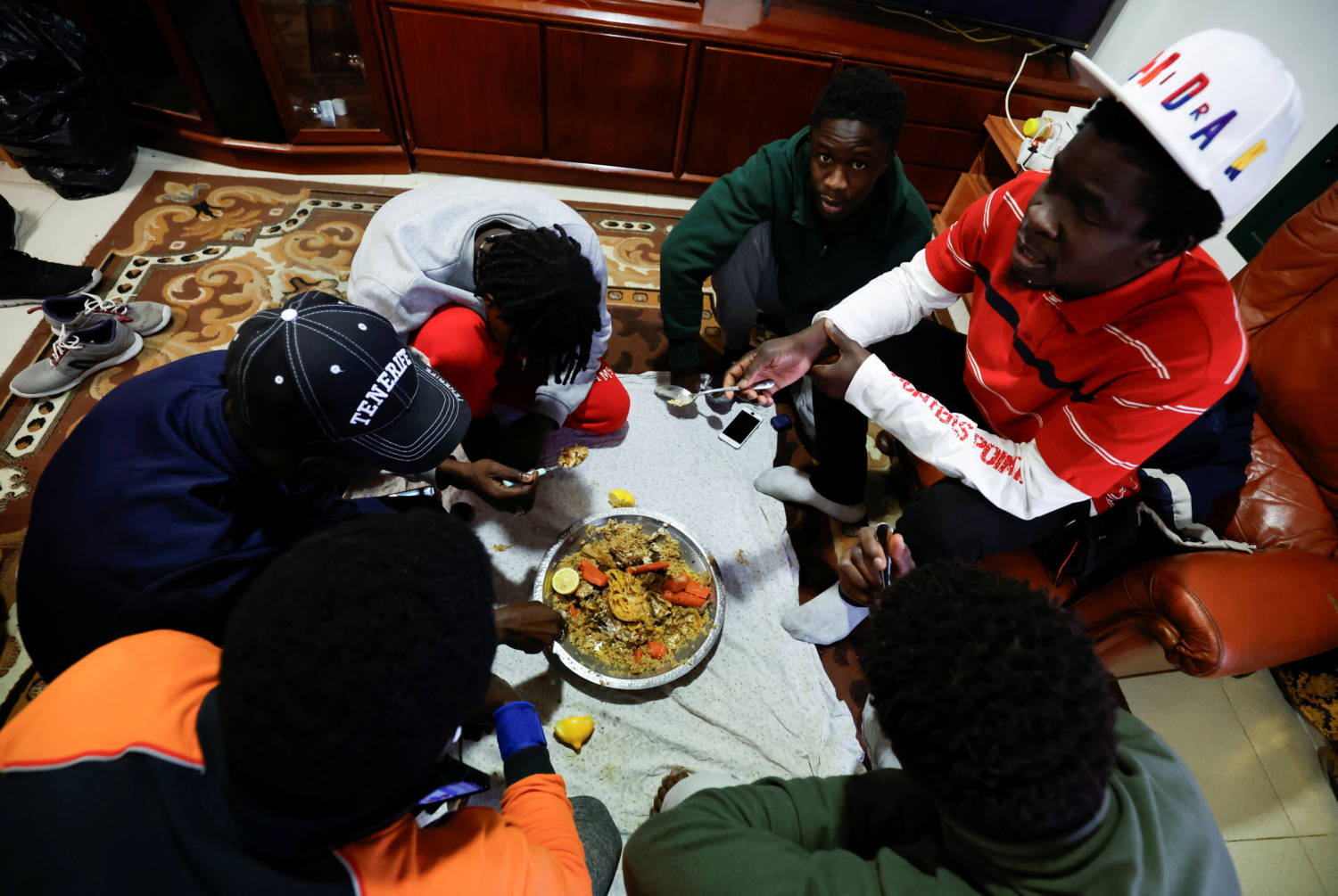Fisherman Khalifa Ndour says Senegalese President Macky Sall is responsible for the plunge in his country’s fish stocks that forced him to risk his life to seek work as a farmhand in northeastern Spain.
Back home in Senegal, his wife Mariatou Mbodj misses her husband. She can’t find work as a fish processor, and she and Ndour’s three children wait anxiously in Bargny, on the coast south of the capital Dakar, for news of his progress in getting legalised in Spain.
Ndour, 42, is one of tens of thousands of Africans, many former fishermen, making a perilous journey to Spain on pirogues, or dugout canoes, as their industry in West Africa faces collapse.
Migrants such as Ndour blame the government for signing away fishing rights to the European Union and China, and the issue has become a topic of debate ahead of Sunday’s Senegalese presidential election.
“The sea in Senegal is dead. That’s because Macky Sall sold all of Senegal’s waters,” said Ndour, referring to the outgoing Senegalese president who has governed since 2012, as he sat in an apartment in the far away town of Guissona in the countryside west of Barcelona.
Spokespersons for the fishing ministry and the government did not respond to requests for comment.
An EU fishing rights deal with Senegal was renegotiated under Sall’s watch focusing mainly on tuna. Since 2014 it has paid Senegal 1.7 million euros ($1.85 million) a year for the right to fish 10,000 tonnes of tuna. In addition, ship owners pay about 1.35 million euros a year in fees, according to the EU.
NGOs blame foreign trawlers for a sharp decline in fish stocks. Artisanal fishermen say their catches fell by 58% between 2012 and 2019, according to a 2023 report by the Environmental Justice Foundation (EJF).
‘SEA DOESN’T WORK’
Some 78% of fishermen and fish processors interviewed by EJF said they found it harder to feed their households compared with five years ago.
“The sea doesn’t work 100% like before,” said Ngom, 20, who made the journey with Ndour to Guissona, a town of 8,000 people in Catalonia.
“That’s why we took the pirogues to come here,” he said as he walked through a market in Guissona.
Anta Babacar, a candidate in Sunday’s election, said last year that if elected she would review the EU agreement, blaming it for the fish shortage and saying it partly explained why young people were boarding pirogues for Europe, according to the Senegalese Press Agency.
A record 39,910 migrants arrived from West Africa via the Canary Islands last year and that is increasing this year, Interior Ministry data show. Rights group Walking Borders says 6,007 people lost their lives on the route last year.
After landing in the Canary Islands in November, Ndour and Ngom made the journey to Guissona. While they would prefer to work as fishermen, their best chance of employment is as farm labourers. But they must first wait for permission to work legally, which can take up to three years.
In Guissona they joined about 50 other people from Bargny who are helping them to settle. They spend their time praying at the local mosque, playing football, taking Catalan classes and video-calling their families back home.
Back in Bargny, Ngom’s mother Astou Faye cleans and processes fish in a lean-to shack on the beach. She said she only learned he had left for Spain once he had gone.
“For the seven days that he was travelling I didn’t sleep,” she said.
Ngom’s grandfather Souleymane Faye, a retired fisherman, said that while he wasn’t happy his grandson had left Senegal, he had no other way of helping his family.
From the beach, he watched the pirogues return from fishing.
“Look, they’ve just arrived,” he said. “Their boxes… there’s nothing.”
($1 = 0.9206 euros)
(Reuters)






